He told the dogs to "leave it alone."
Catagory:Tell story
Author:Daniel kibret
Posted Date:12/18/2024
Posted By:utopia online
There is a famous Oromo story. In an Oromo village, there lived a wise old man named Robele Megera. One day, he saw two dogs belonging to two neighbors fighting. This wise old man said, “Let’s help these dogs; otherwise, their problems will be shared with all of us. The problems in the world are caused by dogs that cannot think beyond their bones.” The elders and passersby in the area were surprised by the old man’s words and laughed at him, saying, “What can two dogs fighting do?” Meanwhile, a boy from the two neighbors came out and saw the dogs fighting. Thinking that his dog was the one who was being attacked, he brought a stick and beat the other dog. The other boy came out from the other house and started beating that dog. The matter spread to the two boys and instead of the dogs, the boys started fighting. The old man said, “Please reconcile these boys.” The people there said, “Let them fight,” and they passed by like a ghost. While the boys were fighting, one of the boys’ mothers appeared. The other boy started beating that boy with a stick. Hearing her son’s screams, the other mother also came. The boys’ fight stopped and the fight was between the two mothers. Robele said, “Please, let’s reconcile them before this fight spreads and involves all of us.” But the onlookers were enjoying the fight between the two as if it were a free fight. Some elders ignored them, saying, “What good will it do if two women fight?” A man stepped into the middle of the crowd. It was the husband of one of them. He said, “How dare you insult my wife?” and started beating the other woman. At that moment, the other husband, who heard the news, came running and broke up the fight. Robelle Magera still said, “Please stop; this fight will save the country.” But they did not listen. Everyone was only concerned about his own children, wives, and homes. The men were angry and told their children and wives not to enter. The fight between the two husbands intensified. The people began to surround him. In the meantime, they began to fight each other, saying that they were from the same tribe. Among those who stood there, those who said that they were from that tribe also started to fight. As the tribes of the two people were different, the fight grew into a tribe. Not only swords and arrows, but also weapons were added. The looting of houses, burning, and killings became more and more frequent. The village became a battlefield. Eighty-eight people from both sides died. The fight stopped with so much suffering. The shepherd was also sad. “If we had stopped the dogs when they were fighting, the tribes would not have fought,” he said. The elders sat down. According to tradition, for each dead soul, a person from the other side is killed or a hundred cattle are given. If this is the case, then eight hundred cattle from both sides are required. In addition to the death of a person from the other side, sixteen people are killed. The number of dead has increased to thirty-two. This matter worried the elders. At this point, Robele stood up. "If you had listened to me earlier, you would have been sent. Each of us has killed for ourselves, not for others, and finally the time has come for us. We have reached this point where we have failed to say, 'Leave the dogs alone.' Whenever wars break out, the saying 'Leave the dogs alone' is disappearing. Neighbor and neighbor, tribe and tribe, king and king, country and country, Islam and Christianity, village and village, the one who fights is disappearing. The origin of war is dogs. The dogs that started the fight with bones cost us lives. These dogs are dogs that cannot think beyond bones. Their only goal is to fight bones. If the country is destroyed, if life is destroyed, if property is destroyed, what do they care about. How can dogs that cannot think beyond bones cost us all this? "You who saw those dogs only saw that they were not your dogs. How can we be peaceful while others are angry? How can we live safely while others are fighting? How can we be satisfied while others are hungry? It is impossible. "We must not lose any more lives, nor our cattle; bring the silver coins of each of you from both sides; and throw them into the river, and let everyone take the donkey; but you will be forgiven," he said, and they were reconciled. If we had not "let go" of the dogs, no one could have imagined the final outcome. When the dogs called Hitler and Mussolini rose, no one could have said "let go" and set the world on fire. At that time, various sources were saying that the Jews were suffering, but the West, who had made us laugh, saw them congratulating Hitler at the Berlin Olympics. And so, in the end, the donkey was spared for them. The first Emperor Haile Selassie appeared at the World Assembly and told the dogs to "leave them alone." Many of them barked like dogs themselves.They tried to suppress the emperor's speech, but they failed. In the end, the dogfight turned into a world war. Today, the world is worried about Iran's nuclear weapons. When the Iranians did not know that there was such a thing as nuclear weapons, the world watched in silence as they knocked on their doors. If they had told the dogs to "leave them alone," then Israel and America would not have been so worried. When America deployed Bin Laden to expel the Soviet Union from Afghanistan, it saved itself and the world from the suffering it had caused. As the saying goes, the dog I raised bit me, the horse I rode jumped me. The French at the time watched in silence as the dogs who broadcasted a program that divided Rwanda into ethnic groups and killed people were killed. When the Rwandan genocide began, many, including the government of the Rwandan government, saw and heard them. The dogs that were abandoned and the fire that the dogs brought ignited a fire that burned East and Central Africa. That is why it is necessary to say “abandon” in time to the dogs that cannot think beyond the bones. In Ethiopia, when it is said that a church has been burned, it is being watched in silence. It is absolutely unacceptable that this evil act represents any religious community. But both Muslims and Christians should “abandon” the dogs that are stoking this fire. Otherwise, the end will come to all of us and we will have to pay a heavy price. These dogs cannot think beyond the daily bone. They only know that they have found a bone by fighting with others for a while. Here, an eye gouging, there, acid throwing, there, child rape, here, homosexuality, there, mutilation, here, dousing with cold water, the media shouts, whispers, and sometimes it is called a crime. But those who give up the dogs are disappearing. I do not understand those who give up the dogs who rape these children, who mutilate the bodies of our sisters, who commit barbaric acts with a ferocious spirit. The saying goes that we all wake up when our doors are knocked, when our children are touched, when our bodies are mutilated, when our sisters are raped. Oh, let's leave the dogs alone. The smugglers and smugglers, who cannot think beyond making money, who do not care about the honor of the country, the dignity of citizens, and the humanity of human beings, are recruiting Ethiopians who do not know anything from their villages, and are being kept quiet while they are illegally crossing into the Arab world in what seems like legal ways. Just as the dogs only see their bones, they only see their money. They do not understand where the person they are sending will fall, what will happen to him, how he will be. But the people are suffering. Sending human resources to Arab countries did not start with us. Indians, Filipinos, Pakistanis, Bangladeshis, Sudanese, Egyptians are flooding in. But there is no one who suffers as much as our people. Why? The one who leaves the dogs is disappearing. The one who says your dog will survive for the country and the people is disappearing, the one who draws a line is disappearing. Today, some countries have come to the point of saying, "We will not give you a visa, we will not accept you," because of the illegality of people who do not feel responsible and think only of their own bones, like dogs. The teachings, writings, speeches, songs, and practices that make us harbor resentment against one faith, one nation, one party, and one another are being silently observed. We should say goodbye to these dogs who cannot think beyond temporary power, position, money, invitations, and applause. Some of us are ours, while others are affected by those outside of us. But let us not forget that our house is made of glass. If we don't let the dogs go, the fire they started to spread like wildfire could eventually destroy all of our homes. And he told the dogs to "leave them alone" from Abu Dhabi.When it began, many, including the governments of the West, were seen and heard, and many were not. The dogs that were abandoned and the dogs that they brought were a fire that burned East and Central Africa. That is why it is necessary to say “leave” in time to these dogs that cannot think beyond the bones. In Ethiopia, when such a church is burned, it is being watched silently. It is absolutely unacceptable that this evil act represents any religious community. But whether Muslims or Christians, we should “leave” the dogs that are stoking this fire. Otherwise, the end will come to all of us and we will have to pay a heavy price. These dogs cannot think beyond the bones of the day. They only know that they have found a bone to grind with each other for a while. Here, an eye gouging, there, an acid attack, there, a child rape, here, homosexuality, there, mutilation, here, the media shouts, whispers, and sometimes it is called a crime. But those who say leave the dogs alone are disappearing. Those who rape these children, those who mutilate our sisters, those who commit barbaric acts with a ferocious spirit are not understood. The reason is that we all wake up when there is a knock on our door, when our children are touched, when our bodies are mutilated, when our sisters are raped. Oh, leave the dogs alone, let's eat them. The smugglers and recipients, who cannot think beyond making money, who do not care about the honor of the country, the dignity of the citizens, and the humanity of the human being, are being kept quiet as they are illegally transporting Ethiopians from their villages to the Arab world under the guise of legality. Just as dogs only see their bones, they only see their money. They do not understand where the person who sends them will fall, what will happen to them, how it will happen. But the people are suffering. Sending human resources to Arab countries did not start with us. Indians, Filipinos, Pakistanis, Bangladeshis, Sudanese, Egyptians are pouring in. But there is no one who suffers as much as our people. Why? Because the dogs are disappearing. Your country and people are being destroyed by the destruction of those who are angry, those who are drawing a line. Today, some countries have reached the point of saying, "Don't bring us here, we won't give you a visa, we won't accept you," because of the illegality of people who don't feel responsible and think only of their own bones, like dogs. The teachings, writings, speeches, songs, and practices that create hatred for one faith over another, one nation over another, one party over another, and create hatred for another, are being seen in silence. We should abandon these dogs who cannot think beyond temporary power, appointment, money, invitations, and applause. Some of us are silent because they are ours, while others are affected because they are outside of us. But let us not forget that our houses are all made of glass. If we do not let the dogs go, the noise they have started to make like a joke will eventually destroy all of our houses. And tell them to "leave" the dogs, Abu DhabiWhen it began, many, including the governments of the West, were seen and heard, and many were not. The dogs that were abandoned and the dogs that they brought were a fire that burned East and Central Africa. That is why it is necessary to say “leave” in time to these dogs that cannot think beyond the bones. In Ethiopia, when such a church is burned, it is being watched silently. It is absolutely unacceptable that this evil act represents any religious community. But whether Muslims or Christians, we should “leave” the dogs that are stoking this fire. Otherwise, the end will come to all of us and we will have to pay a heavy price. These dogs cannot think beyond the bones of the day. They only know that they have found a bone to grind with each other for a while. Here, an eye gouging, there, an acid attack, there, a child rape, here, homosexuality, there, mutilation, here, the media shouts, whispers, and sometimes it is called a crime. But those who say leave the dogs alone are disappearing. Those who rape these children, those who mutilate our sisters, those who commit barbaric acts with a ferocious spirit are not understood. The reason is that we all wake up when there is a knock on our door, when our children are touched, when our bodies are mutilated, when our sisters are raped. Oh, leave the dogs alone, let's eat them. The smugglers and recipients, who cannot think beyond making money, who do not care about the honor of the country, the dignity of the citizens, and the humanity of the human being, are being kept quiet as they are illegally transporting Ethiopians from their villages to the Arab world under the guise of legality. Just as dogs only see their bones, they only see their money. They do not understand where the person who sends them will fall, what will happen to them, how it will happen. But the people are suffering. Sending human resources to Arab countries did not start with us. Indians, Filipinos, Pakistanis, Bangladeshis, Sudanese, Egyptians are pouring in. But there is no one who suffers as much as our people. Why? Because the dogs are disappearing. Your country and people are being destroyed by the destruction of those who are angry, those who are drawing a line. Today, some countries have reached the point of saying, "Don't bring us here, we won't give you a visa, we won't accept you," because of the illegality of people who don't feel responsible and think only of their own bones, like dogs. The teachings, writings, speeches, songs, and practices that create hatred for one faith over another, one nation over another, one party over another, and create hatred for another, are being seen in silence. We should abandon these dogs who cannot think beyond temporary power, appointment, money, invitations, and applause. Some of us are silent because they are ours, while others are affected because they are outside of us. But let us not forget that our houses are all made of glass. If we do not let the dogs go, the noise they have started to make like a joke will eventually destroy all of our houses. And tell them to "leave" the dogs, Abu DhabiThey only care about their money. They don't understand where the person they are sending will end up, what will happen to them, how it will happen. But the people are suffering. Sending human resources to Arab countries did not start with us. Indians, Filipinos, Pakistanis, Bangladeshis, Sudanese, Egyptians are pouring in. But there is no one who suffers as much as our people. Why? The one who says leave the dogs is gone. The one who says your money will be saved for the country and the people is gone, the one who draws the line is gone. Today, some countries have come to the point of saying, "We will not give you a visa, we will not accept you," because of the illegality of people who do not feel responsible and think only of their own bones, like dogs. The teachings, writings, speeches, songs, and practices that make us harbor resentment against one faith, one nation, one party, and one another are being silently observed. We should say goodbye to these dogs who cannot think beyond temporary power, position, money, invitations, and applause. Some of us are ours, while others are affected by those outside of us. But let us not forget that our house is made of glass. If we don't let the dogs go, the fire they started to spread like wildfire could eventually destroy all of our homes. And he told the dogs to "leave them alone" from Abu Dhabi.They only care about their money. They don't understand where the person they are sending will end up, what will happen to them, how it will happen. But the people are suffering. Sending human resources to Arab countries did not start with us. Indians, Filipinos, Pakistanis, Bangladeshis, Sudanese, Egyptians are pouring in. But there is no one who suffers as much as our people. Why? The one who says leave the dogs is gone. The one who says your money will be saved for the country and the people is gone, the one who draws the line is gone. Today, some countries have come to the point of saying, "We will not give you a visa, we will not accept you," because of the illegality of people who do not feel responsible and think only of their own bones, like dogs. The teachings, writings, speeches, songs, and practices that make us harbor resentment against one faith, one nation, one party, and one another are being silently observed. We should say goodbye to these dogs who cannot think beyond temporary power, position, money, invitations, and applause. Some of us are ours, while others are affected by those outside of us. But let us not forget that our house is made of glass. If we don't let the dogs go, the fire they started to spread like wildfire could eventually destroy all of our homes. And he told the dogs to "leave them alone" from Abu Dhabi.


.jpg)














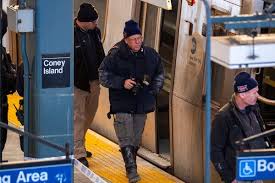 👁 :
👁 :
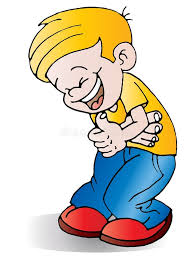 👁 :4
👁 :4
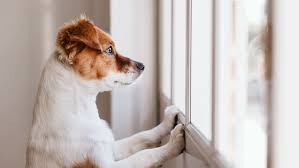 👁 :3
👁 :3
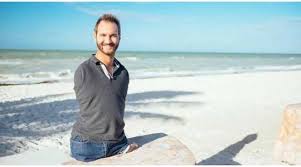 👁 :18
👁 :18
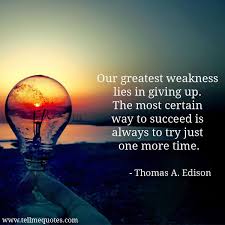 👁 :93
👁 :93
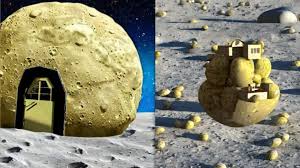 👁 :11
👁 :11
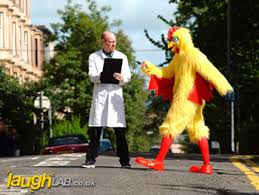 👁 :15
👁 :15